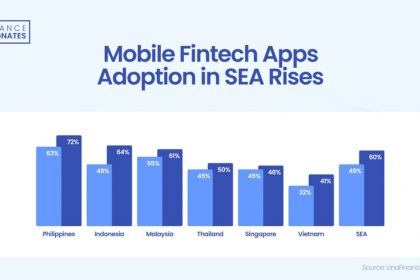Are you looking for an efficient way to integrate real-time communication into your platform? Choosing the right chat API can significantly impact your business’s customer engagement and support services. Explore the best options available, and find out how to select the most suitable chat API for your specific business needs.
Introduction
In today’s digital age, real-time communication has become a cornerstone of customer service and user engagement. Whether you’re running an e-commerce platform, a SaaS product, or a community-driven website, integrating chat functionality is essential to keep your users engaged and satisfied. However, with numerous options available, selecting the right chat API for your business can be overwhelming.
Understanding the Basics of Chat APIs
What is a Chat API?
A chat API is a set of programming interfaces that allow developers to integrate chat functionality into their applications. These APIs provide the building blocks needed to create real-time communication features, such as instant messaging, group chats, and customer support chatbots. By using a chat API, businesses can offer seamless and interactive experiences without having to build chat infrastructure from scratch.
Why Your Business Needs a Chat API
Integrating a chat API into your business platform offers several advantages. It enhances customer support by providing instant communication channels, improves user engagement by enabling real-time interactions, and boosts operational efficiency by automating responses through AI-driven chatbots. Moreover, a well-chosen chat API can scale with your business, supporting growth without compromising performance.
Key Considerations When Choosing a Chat API
1. Scalability and Performance
When selecting a chat API, it’s crucial to consider the scalability and performance of the service. As your business grows, the number of users interacting with your platform will increase. Ensure that the chat API can handle high volumes of concurrent users without latency issues or downtime. Look for APIs that offer robust performance metrics and can scale seamlessly as your user base expands.
2. Customization and Flexibility
Every business has unique needs, and your chat API should be flexible enough to accommodate them. Choose a chat API that allows extensive customization, enabling you to tailor the chat experience to your brand’s specific requirements. Whether it’s customizing the UI, integrating third-party tools, or developing unique chat functionalities, flexibility is key to creating a cohesive user experience.
2.1 UI/UX Customization
Your chat interface should align with your brand’s design and user experience. A chat API that offers customizable UI components will allow you to maintain a consistent look and feel across your platform. Additionally, ensure that the API supports responsive design, ensuring a seamless experience across devices.
2.2 Integration with Existing Systems
Your chosen chat API should integrate smoothly with your existing systems, such as CRM tools, customer support platforms, or analytics services. Check if the API provides out-of-the-box integrations or if it offers an easy way to connect with your current tech stack through webhooks or SDKs.
3. Security and Compliance
Security is a top priority when dealing with user communications. The chat API you choose must comply with industry standards and regulations, such as GDPR or HIPAA, depending on your business sector. Ensure that the API offers end-to-end encryption, secure data storage, and regular security updates to protect your users’ information.
3.1 Data Encryption and Privacy
Look for chat APIs that offer robust encryption protocols for data in transit and at rest. This ensures that all communication between users is secure and private. Additionally, consider APIs that provide customizable data retention policies, allowing you to control how long user data is stored.
3.2 Compliance with Industry Regulations
Depending on your industry, you may need to comply with specific regulations. For example, healthcare providers must ensure their chat systems are HIPAA-compliant, while businesses operating in the EU must adhere to GDPR. Verify that the chat API you choose meets these regulatory requirements.
Exploring Pricing and Support Options
4. Cost-Effectiveness
Budget considerations are critical when choosing a chat API. While some APIs offer a range of pricing tiers, including free chat API options, it’s important to evaluate what you get at each level. Free chat APIs can be a good starting point for small businesses or startups, but they may come with limitations in terms of features, scalability, or support. Compare the costs with the value offered and choose an API that fits your budget without compromising on essential functionalities.
4.1 Free Chat API vs. Paid Options
Free chat APIs are attractive for businesses looking to minimize costs, but they often come with trade-offs, such as limited features or a cap on the number of users. Paid APIs, on the other hand, usually offer more comprehensive features, better support, and higher scalability. Assess your business needs and growth plans before deciding on a free or paid option.
4.2 Long-Term Cost Analysis
Consider the long-term costs associated with the chat API. This includes not just the subscription fees but also the potential costs of scaling, customization, and maintenance. Some APIs may offer lower upfront costs but could become expensive as your user base grows. A thorough cost-benefit analysis will help you make an informed decision.
5. Customer Support and Documentation
Reliable customer support and comprehensive documentation are essential when integrating and maintaining a chat API. Ensure that the provider offers timely and effective support, whether through live chat, email, or phone. Additionally, extensive documentation and developer resources, such as tutorials and sample code, can significantly reduce the learning curve and implementation time.
Conclusion
Choosing the best chat API for your business requires careful consideration of several factors, including scalability, customization, security, cost, and support. By understanding your business needs and evaluating the available options, you can select a chat API that not only meets your current requirements but also supports your growth in the future. Whether you opt for a free chat API or invest in a premium solution, the right choice will enhance your platform’s communication capabilities and contribute to a better user experience.








